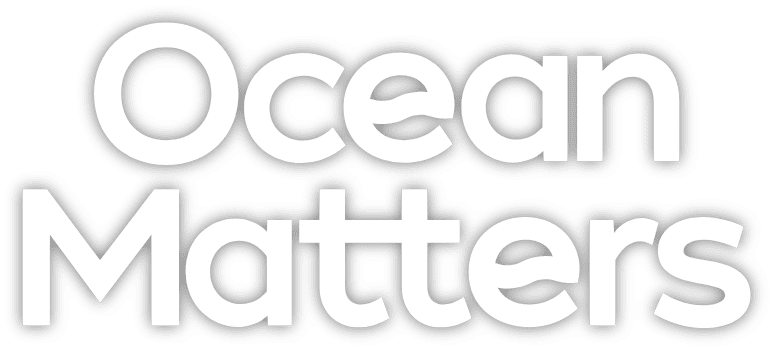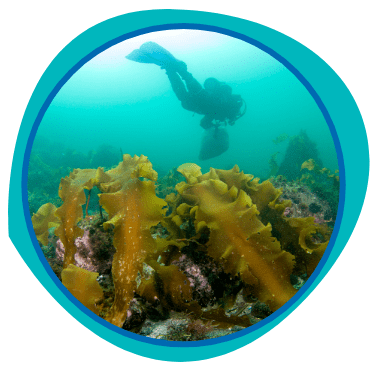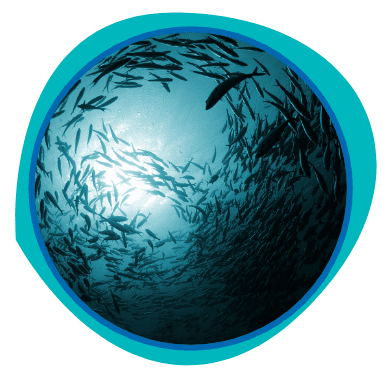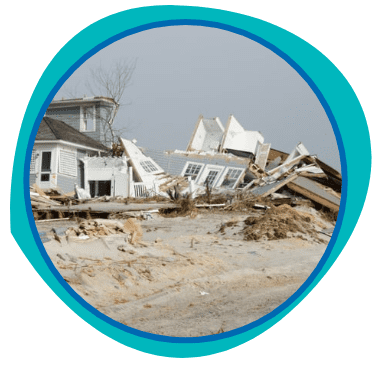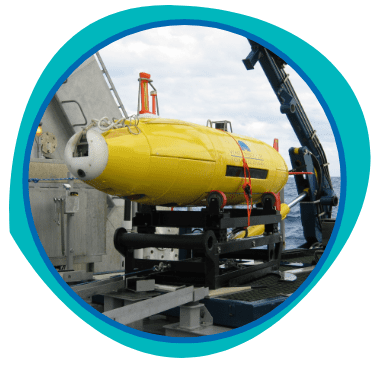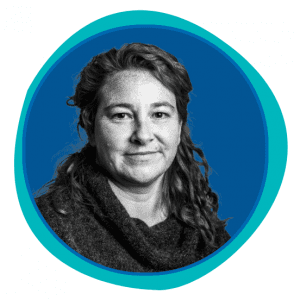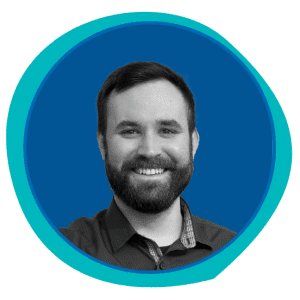Ocean Matters
The ocean matters—in every sense
No matter where we live, our lives and livelihoods are connected to the ocean.
Find your common connection through ocean science!
FOOD SECURITY
How much of the world’s food could be supplied by fish, shellfish, and seaweed farming by 2050?
ANSWER:
Under optimistic projections, the ocean could supply 67% of the 500 million metric tons of food that the FAO estimates we'll need by 2050, or 6x more than it does today.
ECONOMIC PROSPERITY
If the ocean were a country, how big is its economy, ranked by economic output?
ANSWER:
According to the OECD, the global ocean economy is the 5th-largest in the world! Ocean-based industries and activities are valued at $2.5 trillion annually.
DISASTER PREPAREDNESS
At what minimum sea surface temperature can a hurricane form?
ANSWER:
When sea surface temperatures reach 26.5°C (80°F), there is enough water vapor to “fuel” a hurricane. Scientists use real-time temperature data from Argo floats from the surface to 2000m (~6500 ft) to estimate storm intensity.
HUMAN-OCEAN
CONNECTION
What percentage of the global seafloor has been mapped with high-res sonar, revealing potential threats and resources?
ANSWER:
Only about 25% of the seafloor has been mapped, which makes it harder to detect undersea cables, submarines, or hazards—posing risks to both national security and international infrastructure.
WELLNESS
What are some benefits of spending time around the ocean?
ANSWER:
Being near the ocean is great for physical and mental well-being. The negative ions released by ocean waves–along with sensory cues, fresh air, and physical activity–reduce stress levels and release feel-good hormones, which improve mood and increase creativity.
FOOD SECURITY
How much of the world’s food could be supplied by fish, shellfish, and seaweed farming by 2050?
ANSWER:
The ocean could supply 67% of the world’s food by 2050, or 6x more than it does today.
ECONOMIC PROSPERITY
If the ocean were a country, how big is its economy, ranked by economic output?
ANSWER:
According to the OECD, the global ocean economy is the 5th-largest in the world!
DISASTER PREPAREDNESS
At what minimum sea surface temperature can a hurricane form?
ANSWER:
At 26.5°C (80°F), there’s enough evaporation to fuel a hurricane. Scientists estimate storm intensity based on real-time data from Argo floats.
HUMAN-OCEAN
CONNECTION
What percentage of the global seafloor has been mapped with high-res sonar, revealing potential threats and resources?
ANSWER:
Only 25% of the seafloor has been mapped, potentially hiding undersea cables, submarines, and hazards.
WELLNESS
What are some benefits of spending time around the ocean?
ANSWER:
Being near the ocean reduces stress and releases hormones that improve mood & increase creativity.
New possibilities
powered by ocean science
At Woods Hole Oceanographic Institution, our research is fueling solutions that sustain lives, protect communities, and power innovation for a thriving future.

Ocean heroes shaping our future
Behind every breakthrough, there’s a team of scientists and technicians dedicated to finding solutions in the ocean. Meet a few of WHOI’s ocean heroes!
Caroline Ummenhofer
Day job: Physical oceanographer
Superpower: Tackling extreme weather and drought
Booster: Impacts for farmers & fisheries
Gadgets: Advanced computer models, historical ship logs, satellite data
Mindy Richlen
Day job: Senior Research Specialist
Superpower: Finding microscopic toxic algae, engaging with communities to prevent harmful algal bloom impacts
Gadgets: Fluorescence microscope, thermal cycler for amplifying DNA
Bryan McCormack
Day job: Coastal processes specialist
Superpower:Helping property owners mitigate impacts of flooding & erosion
Gadgets: Real-time Kinematic GPS, soil probe, Homeowner’s Handbook
Josh Reitsma
Day job: WHOI SeaGrant aquaculture specialist
Superpower: Water quality testing, sniffing out shellfish disease & pests
Gadgets: Multiparameter sonde, digital calipers, shucking knife
Emily Lau
Day job: REMUS software engineer
Superpower: Resurrecting older-model robots with cutting-edge brains
Sidekick: Franco
Gadgets: Oscilloscope, digital multimeter, Linux laptop
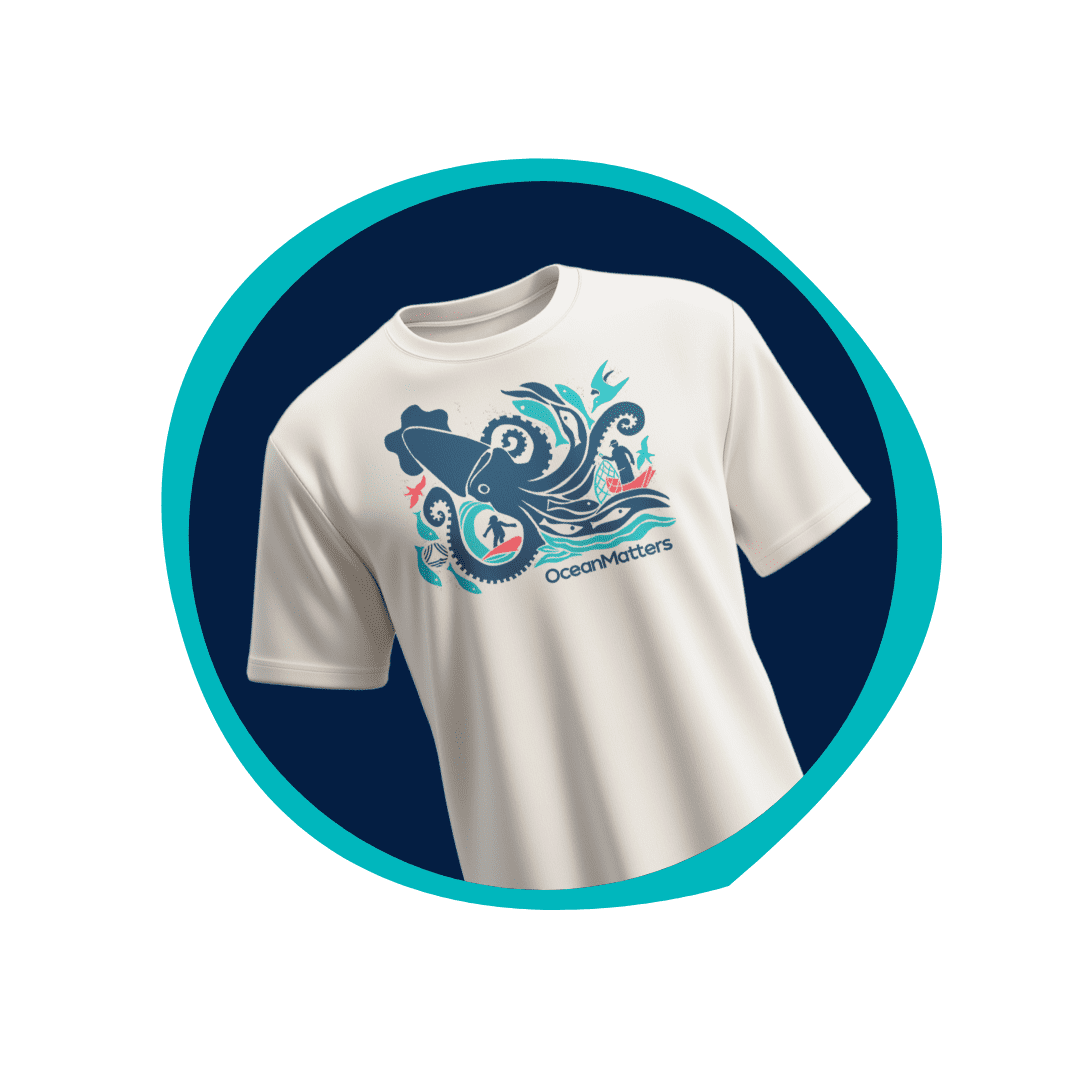
Become an ocean hero!
Help sustain the ocean science that sustains our lives and livelihoods.
When you give or become a member, you power discovery, fuel solutions, and help protect our planet for generations to come.
Join us in creating a brighter future—for the ocean and for ourselves!
